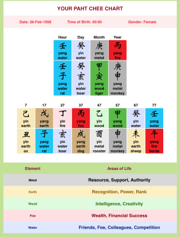
Picture yourself walking past a Gold Coast petrol station when you spot a thick bundle of cash on the ground. No one's around, no security cameras pointed your way—just you and someone else's hard-earned money. What would you do?
For 17-year-old Josh Pache, the answer came without hesitation. When he found $3,500 outside a Tugun service station on a Friday afternoon, the teenager didn't pause to consider his options. He walked inside, handed the money to the staff, and then left without providing his name.
What happened next turned a quiet act of honesty into a story that has captivated Australia and revealed some fascinating truths about human nature.
From panic to praise
The money belonged to Daniel McKellar, director of Coastal Demolitions, who had just collected the cash after dropping copper at a scrap metal yard. During a quick coffee stop at The Fox's Pantry, the bundle slipped from his pocket without him noticing.
'I freaked out that I had lost the money because I couldn't find it in the car,' McKellar told news outlets. The tradie's panic was understandable - $3,500 represents a significant amount of money for any small business.
When McKellar rang the petrol station, hoping against hope, staff delivered news that stunned him: 'a young man had handed the money in without any hesitation'. After viewing the CCTV footage, McKellar took to social media with a simple request: help him find the honest teenager so he could express his gratitude.
'I couldn't live if I took someone else's hard-earned money. It just didn't feel right.'
Within hours, Josh's mother spotted her son in the widely shared video during lunch with friends. The teenager, who hadn't even mentioned finding the money at home, suddenly found himself the centre of a story about integrity that would reach hundreds of thousands of Australians.
What science tells us about honesty
Josh's decision to return such a significant sum might seem exceptional, but global research suggests his behaviour aligns with a surprising truth about human nature. A massive international study involving over 17,000 'lost' wallets across 40 countries found that people were more likely to return wallets containing larger sums of money, with return rates reaching 72 per cent for wallets containing around $100.
Global honesty research findings
International wallet study results:
• 46% returned wallets with no money
• 61% returned wallets with ~$13
• 72% returned wallets with ~$100
Most honest countries: Switzerland, Norway, the Netherlands
Least honest: Peru, Morocco, China
The research reveals a fascinating psychological principle: when there's money in a wallet, people feel more inclined to feel like they're stealing if they don't return it, and the more money the wallet contains, the more people say that it would feel like stealing if they do not return it.
Most people don't want to see themselves as thieves, regardless of the financial temptation. This suggests Josh's moral compass, rather than being unusually strong, reflects something fundamental about how most decent people are wired.
A reward that keeps on giving
McKellar's response to Josh's honesty demonstrates the ripple effect of good deeds. True to his word, he rewarded the teenager with $1,000 and offered him a job with Coastal Demolitions once he finishes school. But McKellar didn't stop there.
In a gesture that would make any Australian proud, he donated the remaining $2,500 to a GoFundMe page for Daniel, a Gold Coast father battling stage four cancer. McKellar also initiated another fundraising effort to help Josh purchase the ute he's been saving for.
'I was never expecting the money back, I thought once I lost it... It was already gone, so I'd rather donate that money to a good cause,' McKellar explained.
The other side of the coin: Australia's honesty crisis
Josh's act of integrity stands in stark contrast to Australia's growing problems with dishonesty. Recent data show that Australians suffered $3.1 billion in losses to scams in 2022, with the actual figure likely being significantly higher, as many victims don't report their losses.
Older Australians are particularly vulnerable, with those aged 65 and over losing $120.7 million to scams—a 47.4 per cent increase. The average scam loss of $20,000 can be life-changing, especially for self-funded retirees who may lose their life savings.
Did you know?
Global research indicates that countries with higher rates of primary education tend to have higher rates of lost wallets being returned. Researchers suggest 'what you learn in school is not just math and reading but also social skills, or just more generally how you treat each other'.
This context makes young people like Josh even more precious to our community. In an era where dishonesty costs Australians billions annually, teenagers who choose integrity deserve our attention and appreciation.
The power of good parenting
Josh's mother, Leanne, provided insight into the values that shaped her son's decision. While she initially thought he shouldn't accept McKellar's reward, she changed her mind, wanting to teach him that 'good deeds and good karma deserve to be rewarded with good things in life.'
The teenager's response reveals a character that goes beyond the single act of returning money. Josh hadn't even mentioned finding the cash to his family, suggesting this wasn't about seeking praise but simply doing what felt right.
When good deeds go viral
The story's reach—with video footage viewed over 600,000 times—demonstrates Australians' hunger for positive news. Social media comments praised both Josh and his parents, with one user writing: 'A person whose mother and father were raised well, kindness always wins.'
However, the viral nature of the story also revealed less savoury behaviour. McKellar reported that multiple people attempted to claim Josh's reward, including someone who used AI to create fake images of themselves wearing Josh's clothing. It's a reminder that while most people are honest, some will always try to take advantage of good situations.
Josh's story offers hope in challenging times. While headlines often focus on youth problems or societal breakdown, here's a teenager who chose integrity when no one was watching. His decision reflects values that many Australian families still prioritise, despite cultural pressures.
For older Australians who sometimes worry about younger generations, Josh represents evidence that good parenting and strong community values continue to produce young people of character. His story also highlights how recognising and rewarding good behaviour encourages more of it.
The business owner's generous response—turning his relief into opportunities for both Josh and a cancer patient—shows how individual acts of kindness can multiply through communities. It's a reminder that while Australia faces real challenges with dishonesty and fraud, the foundation of decency remains strong.
Josh is now saving his reward money for a ute, hoping to land an apprenticeship after finishing Year 12. His practical goals and humble attitude suggest this is a young man who understands the value of both money and character—and knows which one matters more.
What do you think shapes young people's moral compass in today's world? Have you witnessed similar acts of honesty that restored your faith in human nature? Share your thoughts and stories in the comments below.








